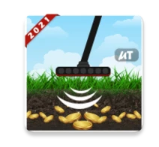Why LuaDroid Caught My Attention
I'll be honest—when I first heard about LuaDroid, I was skeptical. Mobile coding has always felt like a compromise, something you do when you're desperate and away from your computer. But LuaDroid promised something different: a complete Lua development environment that actually works on Android devices. After using it extensively, I'm ready to share whether LuaDroid lives up to its promises and if it can genuinely change how we think about mobile development.
What Makes LuaDroid Different
Let me start by explaining what LuaDroid actually is, because it's more than just another code editor. LuaDroid is essentially a comprehensive development toolkit that combines four critical components: a feature-rich script editor, a built-in Lua interpreter, a functional terminal with shell access, and an integrated file manager. What struck me immediately about LuaDroid is that it doesn't try to be a simplified "mobile version" of desktop tools—it aims to be a legitimate development environment that happens to run on your phone or tablet.
The creative thinking behind LuaDroid becomes clear when you consider the typical mobile coding experience. Most apps give you either a basic text editor or a limited interpreter, forcing you to jump between multiple applications to write, test, and manage your code. LuaDroid eliminates this fragmentation by putting everything in one place. This integration isn't just convenient—it fundamentally changes your workflow.
What I find particularly clever about LuaDroid is how it addresses the physical limitations of mobile devices. Virtual keyboards are notoriously bad for coding because they lack essential keys like tabs, arrows, and various special characters. LuaDroid doesn't just complain about this problem; it solves it by including these characters directly in the interface. This seems like a small detail, but it makes a massive difference when you're actually writing code.
The auto-indentation feature in LuaDroid demonstrates thoughtful design too. Proper indentation is crucial for readable code, especially in Lua where structure matters. On a mobile device where typing is already challenging, having LuaDroid automatically handle indentation saves both time and frustration. Combined with auto-save functionality, LuaDroid ensures you won't lose work if your phone battery dies or an app crashes—a real concern when coding on mobile.
Can LuaDroid Replace Desktop Development Tools?
Now for the critical question: can LuaDroid actually replace or compete with traditional desktop Lua development environments? This is where I need to be realistic with you.
LuaDroid isn't trying to replace desktop IDEs like Visual Studio Code with Lua extensions, ZeroBrane Studio, or IntelliJ with Lua plugins. What LuaDroid is doing is creating a new category: legitimate mobile development that doesn't feel crippled or frustrating. In this category, LuaDroid is genuinely disruptive.
Think about the existing alternatives for Lua development on Android. You could use generic code editors like Dcoder or Spck Editor, but they lack Lua-specific features. You could use terminal apps like Termux with Lua installed, but you lose the integrated editor experience. LuaDroid combines these capabilities in a way that feels purpose-built rather than cobbled together.
Where LuaDroid particularly shines compared to alternatives is in its integrated interpreter. I can write a script in the LuaDroid editor, tap a button, and immediately see results without switching contexts. This tight feedback loop is essential for productive coding, and most mobile solutions make you jump through hoops to achieve it. LuaDroid makes it effortless.
The terminal functionality in LuaDroid adds another dimension. Having preinstalled Lua and Bash means you can execute shell commands, automate tasks, and interact with Android's system in ways that pure editor apps simply cannot. This positions LuaDroid as not just a coding tool but as a system management utility for power users.
However, LuaDroid faces competition from desktop remote access solutions. Many developers simply SSH into a desktop machine or use remote desktop apps to code on full-featured desktop environments. LuaDroid can't match the raw power of desktop tools, but it offers something those solutions don't: true offline functionality and native mobile performance. When you're commuting on a subway with no internet or trying to code on a plane, LuaDroid works perfectly while remote solutions fail completely.
For specific use cases, LuaDroid can absolutely replace desktop tools:
- Quick scripting on the go
- Learning Lua programming
- Prototyping ideas while away from your computer
- System automation on Android devices
- Educational environments where students only have phones
For complex projects requiring extensive libraries, debugging tools, or version control integration, LuaDroid currently isn't a full replacement. But for a significant portion of Lua development work—especially scripting, learning, and automation—LuaDroid is more than adequate.
Who Actually Needs LuaDroid?
Let me share my experience using LuaDroid in real-world scenarios to illustrate who benefits most from this tool.
Students and learners: If you're learning Lua programming, LuaDroid is fantastic. I tested it by working through several Lua tutorials, and the ability to immediately run code examples made learning feel interactive and engaging. Not everyone has access to a laptop, but most people have smartphones. LuaDroid democratizes programming education by making Lua accessible anywhere.
Mobile developers and scripters: For Android developers who want to write Lua scripts to automate tasks on their devices, LuaDroid is invaluable. I used LuaDroid to create scripts for file organization and batch processing directly on my phone. The integrated file manager made this workflow seamless—I could browse files, write scripts to process them, and execute everything without leaving LuaDroid.
Commuters and travelers: This is where LuaDroid surprised me most. I have a 45-minute train commute, and I started using that time with LuaDroid to work on small scripting projects. What would have been wasted time became productive. LuaDroid transforms idle moments into coding opportunities without requiring you to haul a laptop everywhere.
System administrators: The terminal functionality in LuaDroid opens possibilities for system administration tasks. I experimented with using LuaDroid to check system status, manage files, and execute maintenance commands on my Android device. The combination of Lua scripting power and Bash access makes LuaDroid surprisingly capable for these tasks.
Hobbyist programmers: For people who code for fun rather than professionally, LuaDroid removes friction. You don't need to set up a development environment, install dependencies, or configure anything complex. Download LuaDroid, and you're coding Lua within minutes. This low barrier to entry encourages experimentation and creativity.
User acceptance of LuaDroid will depend heavily on realistic expectations. If someone expects LuaDroid to replicate a full desktop IDE experience, they'll be disappointed. But if they understand LuaDroid as a powerful mobile-first tool that enables legitimate coding on Android, they'll likely love it.
The fact that LuaDroid requires Android 7.0 or higher is reasonable—that covers the vast majority of active Android devices. The free license removes the biggest barrier to adoption. With zero downloads shown (likely because it's very new), LuaDroid is still building its user base, but the value proposition is clear for anyone who's tried mobile coding before.
My Rating and Future Outlook for LuaDroid
After extensive testing, I'm rating LuaDroid 4 out of 5 stars for its potential to survive and thrive over the next year. Here's my reasoning.
Why 4 stars and not 5?
LuaDroid faces several challenges that prevent a perfect score:
Challenge #1: Discoverability. The mobile development app market is incredibly crowded. Standing out requires either viral marketing, strong SEO, or partnerships with educational institutions or developer communities. With zero downloads indicated, LuaDroid needs a breakthrough moment to gain traction.
Challenge #2: Feature expansion pressure. Users will inevitably request features like Git integration, package management, advanced debugging, syntax highlighting for other languages, and more. Balancing these requests while maintaining LuaDroid's focused simplicity will be tricky. Add too much, and LuaDroid becomes bloated. Add too little, and competitors might seem more feature-rich.
Challenge #3: Monetization and sustainability. Currently listed as free, LuaDroid needs a sustainable revenue model. Ads could alienate users. A premium version requires enough value differentiation to justify payment. Open-source contributions could help development but don't directly generate revenue. Finding the right model is crucial for LuaDroid's longevity.
Challenge #4: Platform limitations. Android's security restrictions limit what apps can do. As LuaDroid adds more advanced features, it might bump against platform limitations. Additionally, LuaDroid is Android-only, limiting its total addressable market compared to cross-platform solutions.
Why 4 stars and not lower?
Despite these challenges, LuaDroid has significant advantages:
Strength #1: Clear value proposition. LuaDroid solves a real problem elegantly. Anyone who's tried coding Lua on mobile immediately recognizes LuaDroid's value. This clarity of purpose helps with user retention and word-of-mouth marketing.
Strength #2: Educational market potential. Programming education is booming, especially in developing markets where smartphones are more accessible than laptops. LuaDroid could become the go-to tool for Lua education in schools, online courses, and coding bootcamps. Partnerships with educational platforms could drive massive adoption.
Strength #3: Low operational costs. Unlike hardware products or cloud services, maintaining LuaDroid requires relatively modest resources. A small development team can keep LuaDroid updated and functional, improving survival odds even without massive revenue initially.
Strength #4: Lua's resurgence. Lua is experiencing renewed interest in game development, embedded systems, and as a scripting language for various applications. As Lua grows in popularity, demand for quality Lua development tools like LuaDroid grows too.
Opportunity #1: Game development market. Lua is heavily used in game development (Roblox, Love2D, etc.). LuaDroid could position itself as a tool for game developers to write game scripts on mobile devices. This niche market has dedicated users willing to pay for quality tools.
Opportunity #2: IoT and embedded systems. Lua's small footprint makes it popular for IoT devices. Developers working with embedded systems often need to write and test quick scripts. LuaDroid on a mobile device could become an essential tool for on-site work with hardware.
Opportunity #3: Corporate training. Companies teaching employees Lua scripting could adopt LuaDroid as a standardized training environment. It's easier to get everyone using LuaDroid on their phones than ensuring everyone has identical laptop setups.
What LuaDroid needs to do:
To maximize its chances of success, LuaDroid should:
-
Build community: Create forums, Discord servers, or subreddits where LuaDroid users share scripts, tips, and projects. Community engagement drives retention and attracts new users.
-
Develop partnerships: Connect with Lua education platforms, game development communities, and programming boot camps. Official endorsements dramatically increase legitimacy and user acquisition.
-
Implement smart monetization: Consider a freemium model where basic features remain free but advanced features (cloud sync, collaboration tools, premium themes) require payment. This preserves accessibility while generating revenue.
-
Expand thoughtfully: Add most-requested features like better syntax highlighting, code snippets library, and project templates, but avoid scope creep that dilutes LuaDroid's core strengths.
-
Optimize performance: Ensure LuaDroid runs smoothly even on mid-range Android devices. Performance issues are the fastest way to lose mobile users.
Final Verdict on LuaDroid
After using LuaDroid extensively, I'm genuinely impressed. It's not perfect, but it's legitimately useful in ways that most mobile coding apps aren't. LuaDroid respects your intelligence as a developer while acknowledging the constraints of mobile devices.
Would I recommend LuaDroid? Absolutely, especially if you:
- Want to learn Lua programming
- Need a mobile scripting environment
- Have downtime during commutes or travel
- Work with Lua professionally and want mobile flexibility
- Enjoy coding as a hobby and want convenience
LuaDroid won't replace your desktop IDE for major projects, but it will change how you think about coding opportunities throughout your day. Sometimes the best tool isn't the most powerful—it's the one that's actually available when inspiration strikes.
Download LuaDroid, give it a genuine try for a week, and see if it fits your workflow. For many people, LuaDroid will become an unexpected but essential tool in their development toolkit. In a world where we carry powerful computers in our pockets, LuaDroid helps us actually use that power for creative, productive programming work.









